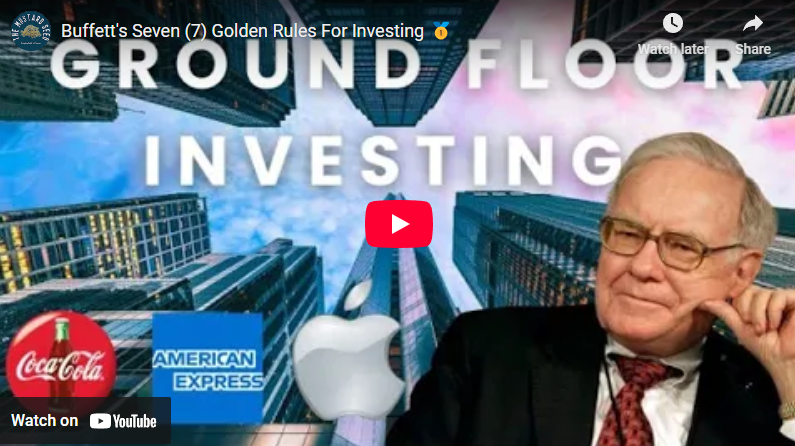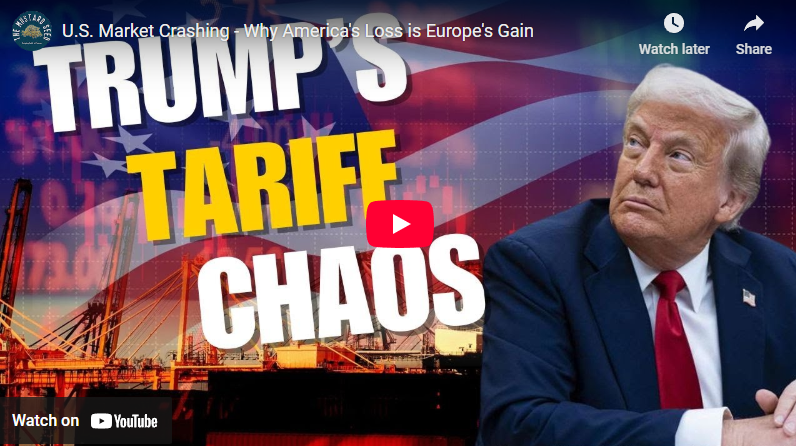Would it surprise you to know that most of the World has NOT been concerned about the Trump Tariffs?
So far this year, much of the rest of the world has not seen stock market declines like the U.S. markets. A few were actually UP today. Yesterday was touted by the Trump administration as “Liberation Day” and “Make America Wealthy Again” day, but the stock market does not seem to agree so far. Tariffs alone are unlikely to do much to hurt stock prices and may actually help the job market.
So, what is it that seems to have the markets so worried?
The tariffs do not seem to be something people in Germany or Italy are concerned about, even though Trump is telling us he will impose these reciprocal tariffs on everyone. In fact, these markets are up 17.5% and 19% respectively through the end of March. Considering these tariffs are supposed to impose penalties on the rest of the world, you would think it would affect them more than it would the United States. It seems the U.S. markets are actually concerned about something else entirely.
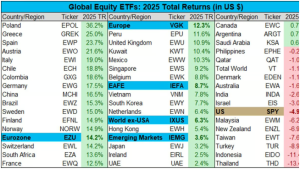
Yesterday’s announcements sent shock waves through the markets when we saw pages and pages of massive tariffs on countries worldwide. The penalties were stiffer than many expected. U.S. markets suffered worse than most other countries’ markets around the world. Only Vietnam markets suffered markedly worse than the U.S. markets. Spain, Ireland, Mexico, Chile, Brazil, Belgium & Switzerland are all UP today.
Surprisingly, Mexico seems to be the BIGGEST WINNER of the day.
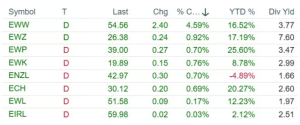
We like to look to the Oracle of Omaha for sage advice concerning markets and what he thinks of the economy and prices of things in general. Warren Buffet has appropriately positioned his portfolio for the eventuality of a selloff, holding over $340 Billion in short-term treasuries, waiting for a better price to buy U.S. equities. He feels there is not much available at prices where he is willing to buy and has been selling large chunks of bank stocks and Apple over the last year. This selling has continued through the first quarter of 2025. However, the recent markdowns may have inspired him to buy.
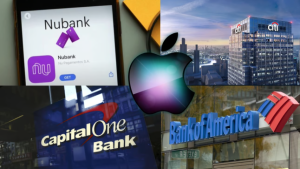
In recent months, Buffett has not been interested in much. We released a video (click to view below) a few weeks ago about how Buffett was developing a taste for pizza and beer as his biggest purchase recently was beer producer Constellation Brands. He has also been adding hundreds of millions of dollars to his Domino’s Pizza holdings. In the last few days, we would not be surprised to find that Buffett buys more shares. We would also expect him to buy more Occidental Petroleum, Sirius XM and other holdings like these when he feels they are selling at bargain prices.
Buffett, in an early March interview on CBS, described tariffs as “an act of war to some degree. It may not draw blood immediately but make no mistake—it’s an act of aggression that invites retaliation.”
In the interview, Buffett points to the Smoot-Hawley Tariff Act of 1930, which raised import duties to protect American businesses but instead deepened the Great Depression as trading partners retaliated.
“The irony,” Buffett notes, “is that protectionism often harms precisely what it claims to protect. American consumers pay higher prices. American manufacturers face higher input costs. American farmers lose export markets. As Will Rogers would say, ‘We’re the first nation in the world to go to the poorhouse in an automobile.’ “ Trump has stated he wants to protect us from countries that may be increasingly utilizing unfair practices to get ahead. In doing this, many feel he is coming across like a “Bull in a china shop”.
But if the tariffs alone are cause for the selloff, why have they only seemed to affect U.S. markets?
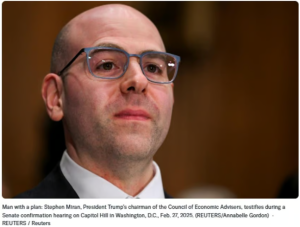
The Mar-a-Lago Accord – “A Method to the Madness”
Last November, Hudson Bay Capital released a 41-page document entitled “A User’s Guide to Restructuring the Global Trading System” which touches on everything from US debt to interest rates to re-shoring of U.S. manufacturing. It centered on the idea of a “Mar-a-Lago accord” built around tackling dollar “overvaluation” and what Stephen Miran wrote could be “a 21st Century version of a multilateral currency agreement.”
Someone in the Trump Administration read the paper and it seems to have struck a nerve with many cabinet members. Many have considered the paper a playbook for what the current administration plans on enacting over the next few years and the man who wrote the paper was later confirmed by the U.S. Senate and sworn in as the chairman of the Council of Economic Advisors in late February.
The paper outlines how tariffs alone will not be enough to put the United States on solid footing to compete globally. A key piece of the plan is being able to devalue the U.S. currency enough to keep tariffs from becoming inflationary, allow us to onshore jobs and produce goods more cheaply for the rest of the world, allowing for increased productivity locally.

A weaker currency would allow us to more easily pay back our national debt, allow lower interest rates for purchasing new homes and increase the amount we will be able to export to the rest of the world. Combined with negotiated import taxes, we may eventually be able to see more Europeans driving American made cars, purchasing oil and other resources from the U.S., and we may be able to get faster delivery of components for U.S. factories and goods for consumers if supply chains become more constrained again in the future.
The pandemic taught us a lesson regarding resource constraints and America’s dependance on the rest of the world. The U.S. does not make many of the products it consumes and manufacturing only accounts for 8% of our economy currently. If we enter into a war, what are we to do if we can no longer receive delivery of resources from China, Vietnam, the Middle East or South America? If we have to rely on ourselves to produce everything we need, what are we to do without a solid manufacturing base?
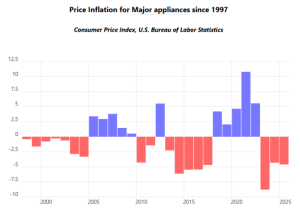
When the dollar is strong, imports become cheaper for Americans and travel to foreign countries is inexpensive. Our dollar goes a long way overseas, but trade suffers as US exports to other countries become more expensive. Since 2000, the trade deficit for the US has grown by over 175% and is now the largest it has ever been at $1.2 trillion in 2024.
Trump has talked about establishing a US sovereign wealth fund which could force the dollar lower by purchasing massive amounts of foreign assets. The United States could exploit its role as a defense guarantor for nations such as Taiwan, South Korea and much of Europe by forcing them into buying century bonds. The idea is to bring interest rates down and then lock in low rates for 100 years to keep our borrowing costs low. Trump could also dangle tariff relief as an incentive for foreign aid in devaluing the dollar.
Trump feels the growing trade deficit is inherently bad. Keynesian economists disagree, emphasizing the role of government in boosting the economy by helping to increase spending in a consumption economy.
How did China grow so rich over the last quarter century?
It was not through consuming more goods and services, it was by producing more goods and services (primarily goods for the rest of the world). The U.S. has grown its GDP since 2000 from $10 Trillion to $30 Trillion, tripling over this time span. China has grown almost 20 times over this same period, increasing its GDP from $1.2 Trillion in 2000 to almost $20 Trillion today.
The U.S. outsourced its manufacturing base overseas over the last few decades. It allowed our consumers much more choice, but at what price? Our economy has not grown nearly as quickly as China’s, and we are now primarily a service economy with over 86% of American jobs in the service sector.
China became a global powerhouse by being more productive than the rest of the world while the U.S. has lost influence by being a “big spender”. What if we are able to outsource some things while having more things “Made in America”? What if we become the most productive again? What if we are able to be self-sufficient again? What if we improve to have a trade surplus instead of a trade deficit again?

Another Lost Decade?
The last time valuations for U.S. stocks were this expensive and the U.S. dollar was this “overvalued” was in early 2000. We had just experienced the dot.com boom, everyone wanted to buy into our markets and the economy seemed to be running hot for some time. After 2000, Clinton left office and the dot.com boom turned into a dot.com bust. The dollar also went from most “overvalued” in 2000 to most “undervalued” in 2008.
Some of this is just the nature of things moving from one extreme to another and some of this is the economic policy of new administrations. One administration wants to make things cheap for consumers while the next one wants to balance trade and bring jobs back to the U.S. The key is to learn from the past to make best decisions in the future.

Europe is Outperforming – What is Next?
The Euro is growing more attractive compared to the dollar. This is attracting more capital to Eurozone countries. Most companies in Europe are also selling at a significant discount to their American counterparts. Why buy shares of Kraft when you can buy Nestle much cheaper? Why buy American Airlines when Ryanair or Luftansa offers a much more compelling value? European markets have already priced in considerable economic pessimism, which creates opportunity for value-oriented investors.
Chinese stocks present compelling value for the more adventurous. The old investment mantra was ABC (Anywhere But China). Today’s contrarians have flipped the script: ABC now stands for All Bets on China. While it’s still hard to trust Chinese accounting, businesses serving China’s domestic consumption will continue growing regardless.
Perhaps most telling, has been the renewed interest in gold. As Will Rogers once quipped, “The quickest way to double your money is to fold it in half and put it in your back pocket.” Gold and cash reserves represent exactly that—a way to preserve capital when all else fails.
As trade tensions escalate and market volatility increases, Buffett’s perspective offers a calm presence in a storm. Warren Buffett’s message is clear: economic isolationism has historically been a losing proposition. The wisest course may be to hunker down until the storm passes.

Anytime investment sentiment becomes this bearish, and volatility reaches new highs, we are typically close to a bottom. This does not mean we have seen “the bottom”.
Likely we will see a rally from here but increased concerns about the health of the U.S. economy as government cost cutting takes hold and unemployment creeps up. (Government severance packages are set to expire in September) Europe and China may have already seen the worst, however. It may be that the U.S. catches cold while the rest of the world starts to recover. The markets seem to be telling us this currently.
Selloffs like we have seen over the last few weeks should not be cause for panic. There are opportunities all over, if you open your eyes and look for them.
Warren Buffet once said that during downturns we are to “heed these lines” from Rudyard Kipling’s classic poem “If,” circa 1895.
“If you can keep your head when all about you are losing theirs … If you can wait and not be tired by waiting … If you can think — and not make thoughts your aim … If you can trust yourself when all men doubt you … Yours is the Earth and everything that’s in it.”

Joe Franklin has been named by Forbes as one of Tennessee’s Top Advisors!
Franklin Wealth Management
4700 Hixson Pike
Hixson, TN 37343
423-870-2140

